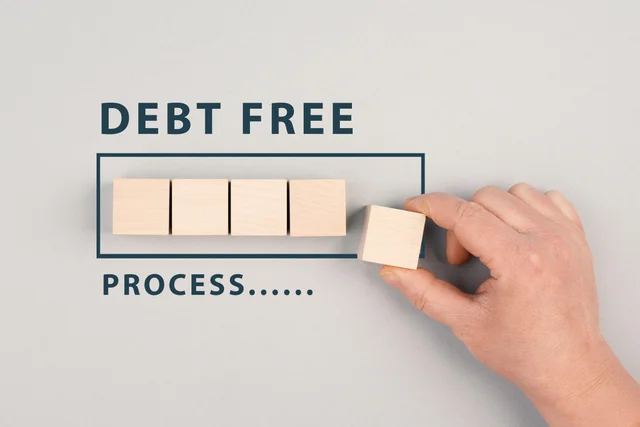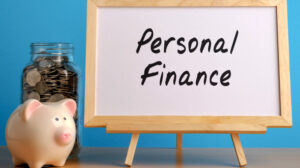Debt is one of the greatest obstacles to financial freedom. Many people are trapped in cycles that involve borrowing, interest payments, and mounting obligations, which limit their ability to save or invest. Understanding the importance and benefits of debt reduction will help you take control of your finances. Reducing debt alleviates financial stress and paves the way for a lifestyle that is more independent and stable. You can make more choices when you owe less. This change in perspective is crucial for a better financial future.
Assessing Your Current Debt Situation
You need to understand your financial situation before you can take meaningful steps towards debt reduction. Gather information on all of your debts, including credit cards and personal loans. You can avoid feeling overwhelmed by creating an accurate picture of your debts. You can create a realistic and focused debt reduction plan based on your interest rates and monthly payments. It is easy to misjudge the size of the problem and your repayment efforts without this clarity.
Prioritizing High-Interest Debt First
Prioritizing high-interest debt is one of the best ways to reduce it. Interest rates on credit cards, payday loans, and some personal loans can make repayment difficult. You can reduce your interest payments by focusing on these debts first. This can help you save a lot of money in the long term and give you more money to pay off other debts. It may feel good to pay smaller debts off quickly, but tackling high-interest debts first will have a greater impact on your financial health.
Use the Snowball Method to Motivate
The snowball method, which involves paying off the smallest debts in order of importance, can be a powerful motivational tool. This method allows you to achieve quick victories and creates momentum. It makes it easier to stick to your debt-reduction journey. You can use the money you save to pay off your next smallest bill, creating a compounding impact that speeds up repayment. You can stay motivated and disciplined by eliminating debts as quickly as possible.
Cut Unnecessary Costs to Free up Cash
Spending less on unnecessary items is a wonderful way to reduce debt. It may mean eating out less often, cancelling subscriptions that are not used, or finding cheaper alternatives to regular purchases. Over time, even small changes add up and allow you to pay more towards your debt. These cuts should not be viewed as a deprivation but rather as temporary adjustments to help you reach financial freedom faster. Once you have paid off your debt, you can add some of these costs back into your budget.
Avoiding New Debt During Repayment
Avoiding taking on additional debt when you’re trying to pay down existing obligations is one of the most important rules for debt reduction. You will slow down your progress by adding more debt, and you may even lose the gains that you’ve made. Maintaining discipline in your credit card usage, avoiding impulsive purchases, and establishing an emergency fund plan are crucial. A small emergency fund will help you to avoid using credit for unexpected expenses. For long-term success, it is important to stick with your current repayment plan and not add new obligations.
Keep Motivated Through the Process
It can be difficult to stay motivated as you work toward debt reduction. You can maintain momentum by setting small milestones, keeping track of your progress, and celebrating your achievements. You can also stay on track by surrounding yourself with supportive individuals or finding accountability partners. You should remind yourself of your motivations for starting, whether it was to reduce stress, achieve financial independence, or reach a particular goal. You can overcome challenges by staying persistent and committed.
Conclusion
To reduce debt, you need to be disciplined, focused, and willing to sacrifice for the long term. Understanding your financial situation and creating a realistic budget, while staying focused on your goals, will help you to free yourself of debt. It may take some time, but each step you take will bring you closer to your desired life. You can change your financial outlook and achieve debt-free status with the right mindset and strategies.
FAQs
1. What is the fastest method to pay off debts?
To pay off debt quickly, focus first on the high-interest obligations. You can also reduce expenses and increase income to make more money available for repayment.
2. Should you save money to pay off your debts?
You should have a small fund for emergencies to avoid taking on more debt when you are repaying your debts. However, the majority of extra money should be used to reduce debt.
3. What happens if I cannot make my minimum payment?
Contact your creditors and discuss options for hardship. You can also work with a credit counseling agency.
4. Does debt consolidation make sense?
It can be beneficial to consolidate your debts if you want to lower your interest rates and simplify your payments. However, it is important that you maintain discipline in order not to take on any new debt.
5. How much time does it take for you to be debt-free?
Your timeline will depend on the total amount of debt you have, your interest rate, and your repayment strategy. However, with consistent efforts, most people can see progress in a matter of years.




